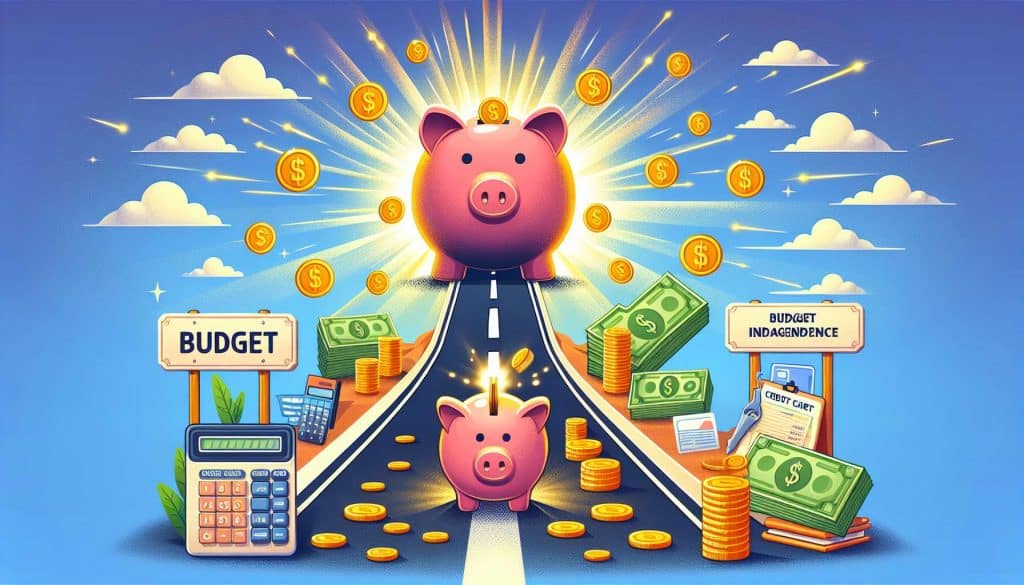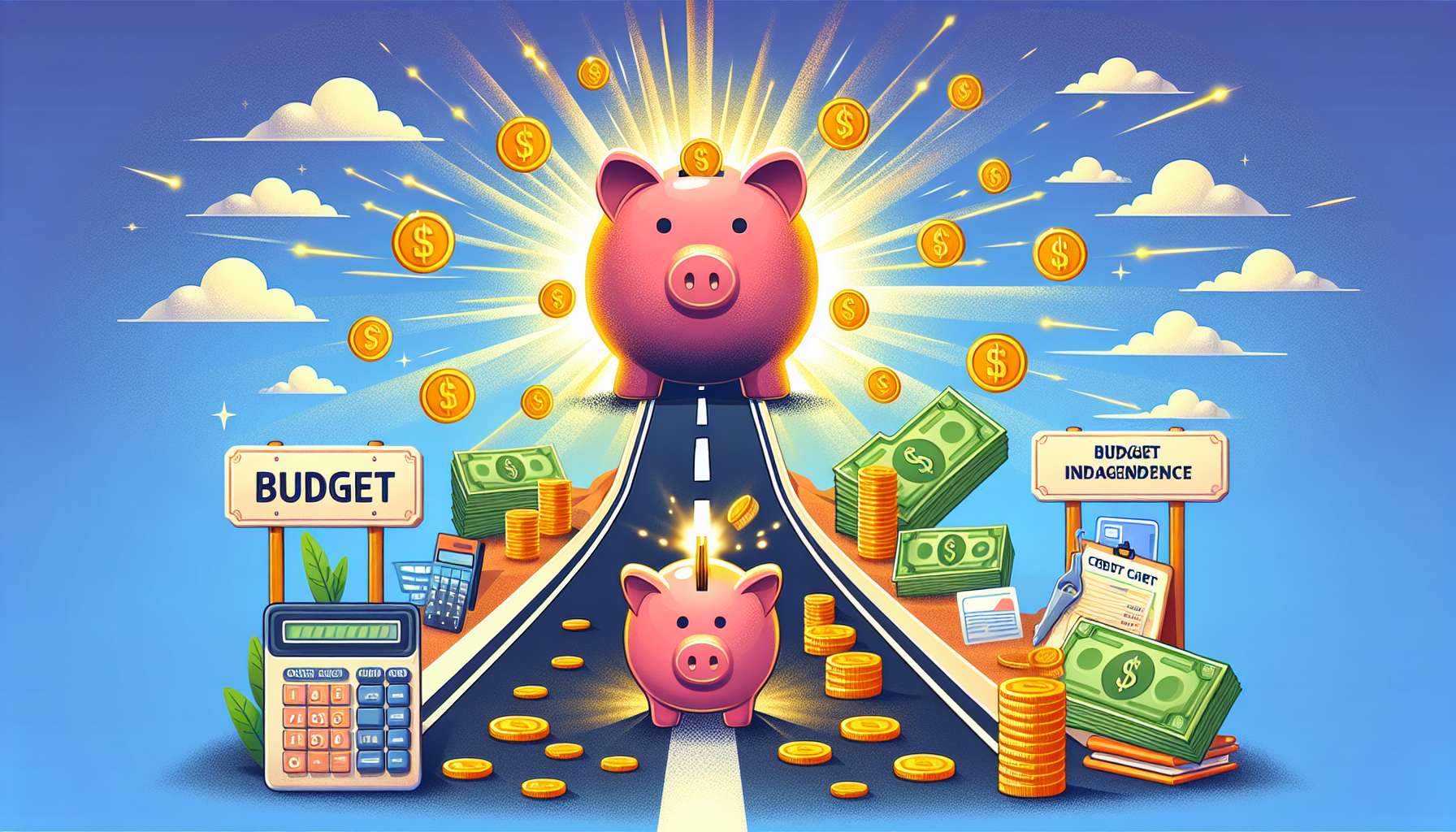Master Your Budget: Unlock the Path to Financial Freedom


Mastering the Art of Personal Budgeting
In today’s ever-evolving financial landscape, mastering personal budgeting is a pivotal skill for attaining financial stability and independence. With the rising costs of living, creating an effective budget can help you navigate through your monetary responsibilities with ease. This article aims to provide you with valuable insights into personal budgeting, enabling you to take charge of your finances. Whether you’re new to budgeting or looking to refine your strategy, this guide is tailored to meet your needs.
Anúncios
Understanding the importance of a well-structured budget is crucial, as it serves as the backbone of financial health. A personal budget isn’t just about numbers; it’s a strategy that fosters informed financial choices. Allocating funds wisely can safeguard you against debt, ensure savings, and propel you toward financial freedom. By embracing budgeting, you learn to prioritize necessities over desires, paving the way for financial security.
Yet, before diving deep into budget creation, setting clear financial goals acts as a compass. Define your aspirations: Are you eyeing a new home, ready to launch a business, or planning for retirement? Tangible goals serve as milestones, guiding your spending and saving habits. Remember the SMART framework for setting goals: Specific, Measurable, Achievable, Relevant, and Time-bound, ensuring clarity and focus in your financial journey.
Creating a personal budget involves several strategic steps. First, tracking both income and expenses offers clarity. Document your income sources monthly, including salaries and bonuses, to understand your financial reach. Similarly, categorize and monitor expenses, from essentials like rent to discretionary spending, using tools like spreadsheets or apps for accuracy.
Post tracking, analyzing your spending patterns becomes essential. Over a few months, you can identify unnecessary expenses. Are there subscriptions unused or areas you’re overspending in? Evaluate alternatives or consider cutting back where feasible. This analysis forms the foundation for financial adjustments.
With identified spending habits, it’s crucial to establish spending limits. Based on financial goals, allocate funds to priority areas like housing and groceries before entertaining non-essentials. An emergency fund is also vital, ensuring at least three to six months of expenses. This cushion shields you from unforeseen financial strains.
Regularly revisiting and adjusting your budget ensures alignment with your financial goals. Analyze it monthly, staying flexible to adapt to income shifts or unexpected expenditures. Adjustments are part of the process, ensuring relevance and effectiveness in your financial strategy.
Understanding Personal Budgeting
Personal budgeting is more than financial tracking; it’s about crafting a financial plan conducive to reaching your goals. By setting forth objectives and tracking your monetary flow, you gain a deeper insight into your financial landscape. Budgeting encourages disciplined spending, curbing impulsive buys and paving the way for savings and investments.
While budgeting is beneficial, it’s crucial to sidestep common pitfalls. Not accounting for irregular expenses, like car repairs, can derail a budget; setting aside monthly allowances for such expenses is wise. Additionally, overly restrictive budgets can lead to burnout. Allow room for leisure, maintaining motivation and balance in your financial plan.
Advancements in technology offer numerous budgeting tools, simplifying the process. Mobile applications like Mint or budgeting tools like spreadsheets in Excel provide user-friendly platforms for financial tracking. Moreover, consulting financial planners can offer personalized strategies, especially for complex scenarios.
Beyond finances, the psychological benefits of budgeting are profound. It instills a sense of control, reducing anxiety around bills and savings. Financial confidence enhances overall well-being, freeing you to relish life’s experiences without monetary stress.
Features of Personal Budgeting
- Encourages financial discipline by prioritizing needs over wants.
- Tracks income and expenses for clearer financial visibility.
- Helps mitigate unexpected financial crises through emergency funds.
- Promotes regular financial reviews and adaptations.
The Benefits of Personal Budgeting
Implementing a personal budget offers numerous benefits. Primarily, it ensures financial clarity, replacing guesswork with informed decisions. By understanding your monetary flow, savings increase, and unnecessary expenses decline. Efficient budgeting empowers you to pursue dreams like home ownership or new businesses with confidence.
Furthermore, strategic budgeting promotes financial independence. When you live within means, debt reduces, and financial freedom becomes attainable. It also bolsters long-term planning, allowing for early retirement, wealth accumulation, or children’s education without stress.
Beyond tangible benefits, budgeting fosters psychological peace, diminishing financial anxiety. It instills responsibility, ensuring timely bill pay and avoiding penalties. By actively managing money, stress around financial uncertainty lessens, leading to enhanced mental well-being.
Lastly, effective budgeting paves the path for philanthropic goals, allowing you to give back to your community. It inculcates a habit of financial prudence, personal development, and, ultimately, a rewarding financial journey.
- Enhances financial clarity through precise planning.
- Promotes savings, facilitating long-term goals.
- Reduces debt by fostering disciplined spending habits.
- Cultivates psychological well-being, reducing money-related stress.
- Empowers philanthropy and personal development.





